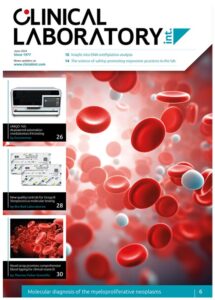Gilead and Assembly Biosciences partner to develop next-gen therapeutics
Gilead Sciences has entered into a 12-year partnership with Assembly Biosciences, a biotechnology company developing antiviral therapeutics targeting serious viral diseases. The partnership, announced 17 October, aims to advance the research and development of novel antiviral therapies, with an initial focus on Assembly Bio’s established areas of herpesviruses, hepatitis B virus (HBV) and hepatitis D virus (HDV).
Assembly Bio’s current portfolio of small molecule antiviral therapeutics includes both clinical and preclinical programmes, including next-generation core inhibitor ABI-4334 for the treatment of HBV, long-acting helicase-primase inhibitor ABI-5366 for herpes simplex virus (HSV), an orally bioavailable HDV entry inhibitor ABI-6250, and a pan-herpes polymerase inhibitor programme.
“Advancing the next wave of innovation in virology remains a core focus for Gilead as we seek to address the unmet needs of people affected by serious viral infections around the world,” said Tomas Cihlar, Senior Vice President of Virology Research, Gilead.
“Collaborations and partnerships are key in the pursuit of the next wave of transformative innovations. We are excited to announce this partnership with Assembly Bio to synergize our efforts on advancing and accelerating the discovery and development of novel antiviral therapeutics,” Cihlar added.
Jason Okazaki, chief executive officer and president of Assembly Bio, commented: “We are thrilled to partner with Gilead to address significant unmet medical needs in herpesviruses, viral hepatitis and beyond. With
Gilead’s established success in developing and commercializing antiviral medicines and Assembly Bio’s advanced virology research capabilities, we believe the shared expertise and promising investigational therapies that both organizations contribute to this collaboration have the potential to deliver significant advances to patients. This transaction represents a critical step in Assembly Bio’s path to becoming a fully-integrated biotechnology company and we are eager to begin working with our new partner.”
Under the terms of the agreement, Assembly Bio will receive US$100 million, consisting of an $84.8 million upfront payment and a $15.2 million equity investment from Gilead. Gilead’s initial equity investment at a premium represents 19.9 percent of the outstanding voting stock of Assembly Bio as of the date of closing. In addition, subject to certain conditions, Gilead has agreed to purchase up to 29.9 percent of Assembly Bio’s outstanding voting stock at a premium.
Gilead may opt-in to obtain exclusive rights for each of Assembly Bio’s current and future programmes, including two preclinical programmes targeting HSV and transplant-associated herpesviruses that Gilead is licensing to Assembly Bio, upon payment of an opt-in fee of at least $45 million per programme after clinical proof-of-concept is achieved. If Gilead opts-in to any current or future programme under the collaboration, Assembly Bio is eligible to receive up to $330 million per programme in potential regulatory and commercial milestones, in addition to royalties ranging from the high single digits to high teens. During the term of the collaboration, Assembly Bio will also be eligible to receive three separate $75 million collaboration extension payments at prespecified timepoints during the collaboration term to help fund future research and development.
Following Gilead’s exercise of its option for an Assembly Bio programme, Assembly Bio will have the right to opt-in to share profits and costs in the United States. For future new programmes, Assembly Bio will also have an option to co-promote those products in the United States.
Assembly Bio will be primarily responsible for the research and development efforts on the collaboration programmes, including the two contributed Gilead programmes, prior to Gilead’s potential opt-in. Following Gilead’s opt-in, Gilead will control discovery, research, development and commercialization on the optioned programme(s).




